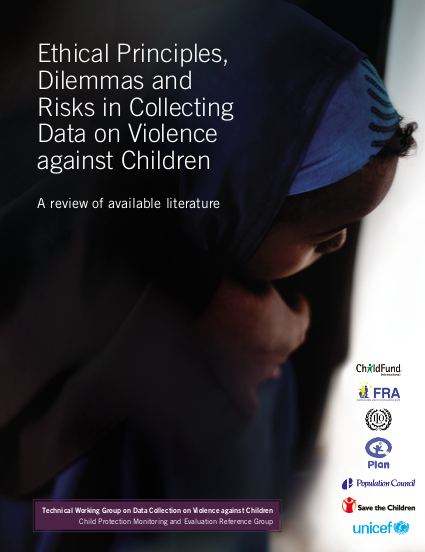
Ethical guidelines are crucial when carrying out research on violence against children (VAC). Such guidelines help to minimize the risk of potential harm resulting from the data collection process to participants, researchers and others, and ensure that any remaining risks are outweighed by the potential benefits. Research ethics and methodologies are closely linked, with ethically sound research protocols and tools adding to the value of the research. Recent years have seen growing efforts to collect data on VAC and close gaps on child protection monitoring, evaluation and research. However, there are, as yet, no internationally recommended or agreed upon ethical guidelines for VAC research. This literature review is a contribution to the foundations for the development of such ethical guidelines. It aims to capture current thinking around ethical issues and provide empirical support to guide recommendations for ethical research practice and decision-making in collecting data on VAC. The review was prepared on behalf of the Technical Working Group on Data Collection on Violence against Children (part of the Child Protection Monitoring and Evaluation Reference Group). A sister project that has been carried out simultaneously to this research provides a more detailed inventory and assessment of existing tools and methods to collect data on VAC. This review examines documentation, including both published and ‘grey’ literature that is of specific relevance to research ethics in collecting data on VAC. It includes ethics guidelines, codes, protocols and practice-related documentation, as well as research-based publications. An Internet-based search was used to identify and locate documentation for review.